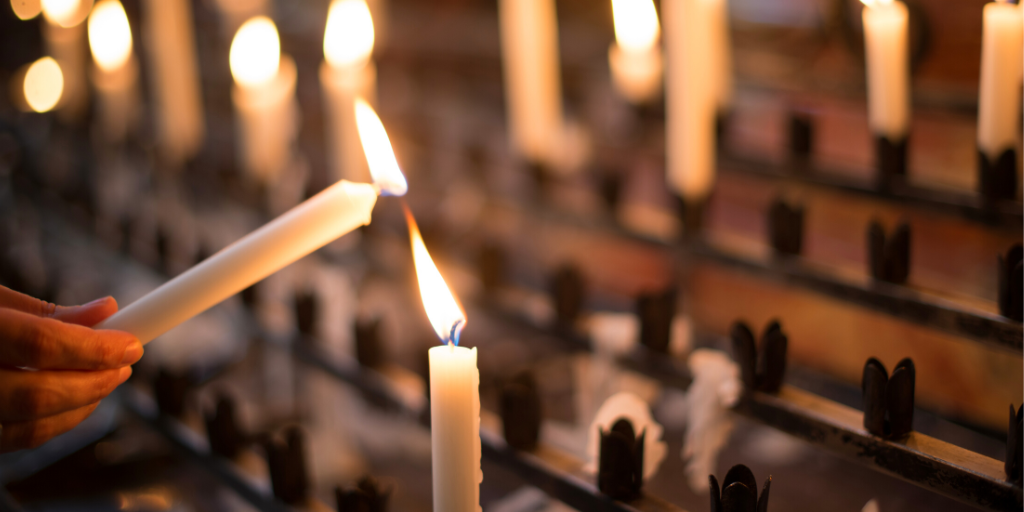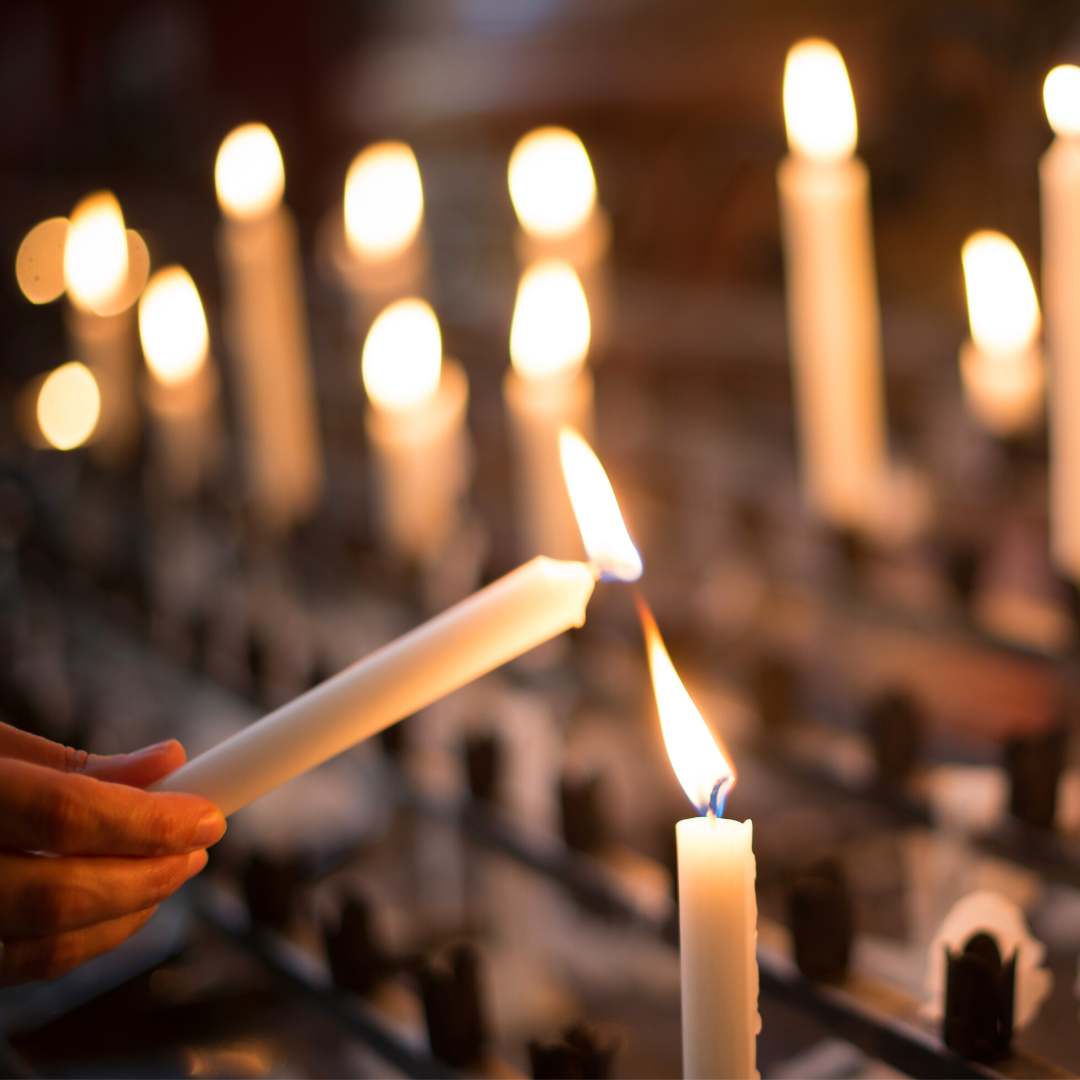
Kristina Talbot reflects on the gift of remembrance and ways to accompany the grieving.
How did we find ourselves in the middle of November?! Every time we get to this point of the year, I feel as though the marathon mentality gives way to the sprint. Often, I have a sense that everything is moving faster than I am and it is difficult to shift into a quicker pace. I’m impressed by the people who complete their Christmas shopping by Thanksgiving, and I am deeply sensitive to those who enter the holiday season with the weight of grief upon them.
Our Church is so incredibly beautiful in her wisdom. Of course, the month that turns the page into the holiday season wrapping up the liturgical year would coincide with the month set aside to remember our deceased loved ones and pray for the souls in purgatory. For me personally, having lost my mother earlier this year to Alzheimer’s, the awareness of this collective solemn time of prayer feels like a teammate coming back for me and running by my side so that I don’t get left behind in the race. It helps me to recognize that I am not alone.

As difficult as loss is, our Church gives room and carves out sacred space to acknowledge that grief and loss are a part of our journey. We the faithful are given a platform to honor and demonstrate a sense of knowing whom we’ve lost within the body of Christ. Parishes typically provide a book of remembrance accessible to the community where a written notation of those who have died this year is recorded. The physical practice of writing by hand the name of someone who has died is a solemn healing act of acknowledging the loss in a real and tangible way.

In my encounters with grief, I have found that the uncomfortable space is difficult to navigate not only for the one who has lost a loved one but also for those around them. That discomfort can lead to uncertainty on how to love and support someone through their grief journey. By setting aside this month of remembrance, it may be possible to yield our desire to fix someone’s loss but rather remember along with them.
Here are a few practical things that may help support someone in their time of loss:
- Perform tangible acts of service that require little planning for the individual. Offers are wonderful but specific plans with few options to choose between are easier for a grieving mind. For example, instead of saying, ‘just let me know if you need anything.’ Say, ‘I would like to bring you dinner in the next week or two. How is next Tuesday?’
- Intentionally spend quality time with the person with an open heart. Plan a coffee date, a walk or meet at Mass and allow the person to set the pace for conversation or even silence. The gift of your presence with them is enough.
- Acknowledge the difficulty of this season for those grieving. Let the person know you are mindful of their grief journey and consider having a mass offered for the intention of their loved one.
The grieving process looks different for each person and there is not a linear path that follows a set schedule. The holidays conjure up memories of time and traditions shared with those who are no longer with us in bodily form. As families gather, the empty arms from a child lost or empty chair of a loved one deceased are part of the journey of the human experience.
I’m learning to share the stories of my mother with my children and develop the language to speak of her in the past tense. I’m also in the process of deepening my connection to the gift of our faith, which provides us access to prayers from and for our loved ones.

Let us not hesitate to help those who have died and to offer our prayers for them. (Saint John Chrysostom)
This month, we are given room to remember whom we’ve lost but also to recall our shared gift of faith in hope of the Resurrection. It is more comfortable to celebrate life and recall the beautiful memories given to us by those whom we love; but let us also recognize our call as Catholic Christians to pray faithfully for the holy souls in purgatory and unite ourselves with the communion of saints at the source and summit of our faith in the Eucharist the very word which means Thanksgiving.
When a man is dead, he can do nothing more for himself. The time of active probation is past. But we can do something for the faithful departed in purgatory. Our love extends into the afterlife. Through our fasting, prayers, and good works, but especially through the celebration of Holy Eucharist, we can obtain grace for the departed. (YOUCAT 160)
Copyright 2022 Kristina Talbot
Images: Canva
About the Author

Kristina Talbot
Kristina Talbot is a Licensed Clinical Social Worker and native Floridian who loves that her engineer husband enjoys Karaoke, and her four children enjoy carpool line with the music up. Kristina is the owner and founder of ARISE Mental Health Consulting Services and has a ridiculous amount of knowledge about football. You can follow Kristina on Facebook and Instagram @arisemhc.


.png?width=1806&height=731&name=CatholicMom_hcfm_logo1_pos_871c_2728c%20(002).png)
Comments